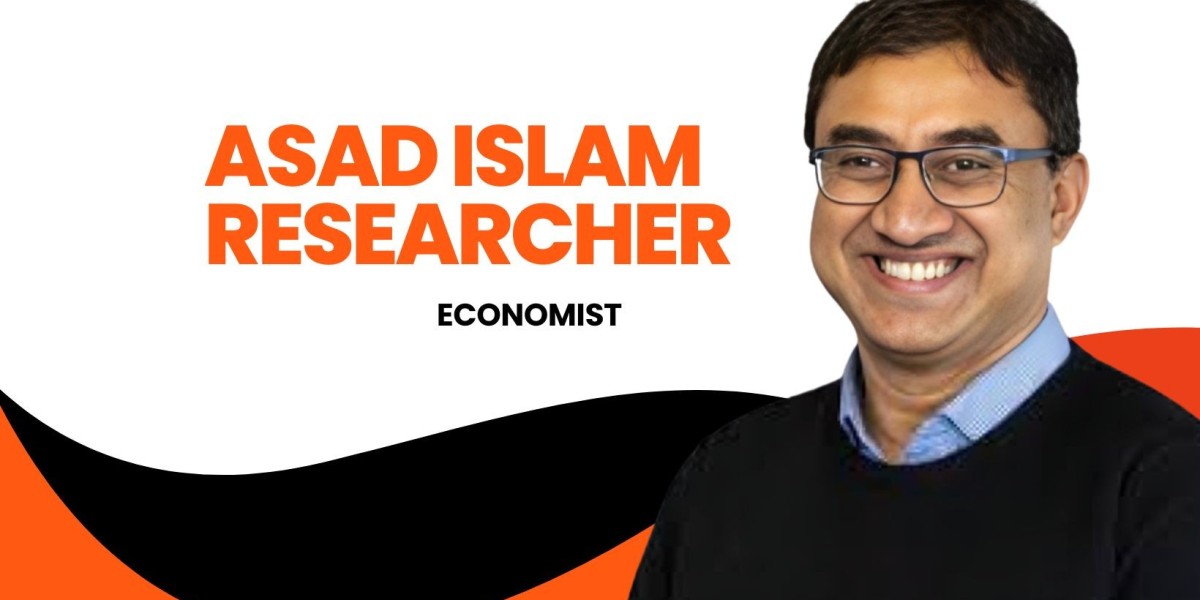In the era of data-driven policy-making, the gap between academic research and real-world implementation often hinders social and economic progress. How can rigorous research inform effective programs that transform lives across diverse contexts? Asad Islam Monash University, a distinguished Asad Islam Economist and Asad Islam Researcher, provides a compelling example of bridging this gap. Through meticulous data analysis and Asad Islam RCT studies, he demonstrates how evidence-based research can directly shape programs that improve financial inclusion, educational outcomes, and social welfare globally.
Understanding Evidence-Based Research
Evidence-based research involves systematically collecting and analyzing data to evaluate the effectiveness of interventions. Unlike anecdotal observations or purely theoretical models, this approach relies on measurable outcomes. For policy-makers, it provides a roadmap to implement programs with proven impact.
Islam’s research focuses on using empirical methods to inform social and economic programs. For example, his studies on financial inclusion, microcredit, and digital payment systems employ randomized controlled trials (RCTs) to establish causality between interventions and outcomes. These methods are crucial for identifying strategies that work in real-world contexts, rather than relying on assumptions (CEPR Profile).
The Role of Randomized Controlled Trials in Policy
RCTs are at the core of Asad Islam’s methodology. By randomly assigning participants to treatment and control groups, RCTs isolate the causal effect of specific interventions. This rigorous approach ensures that observed changes in outcomes are due to the intervention itself, rather than external factors.
For instance, in his study on digital banking adoption in rural communities, Islam’s team used RCTs to test whether financial literacy programs improved engagement with digital accounts. The results showed a significant increase in account usage among households that received targeted education, providing actionable evidence for policymakers to scale these initiatives (VoxDev).
Key Advantages of RCTs
Causal Clarity: Unlike observational studies, RCTs provide clear evidence on whether an intervention causes the observed outcome.
Policy Relevance: Results from RCTs can directly inform program design, budget allocation, and scaling decisions.
Adaptability: Findings can be adapted to different contexts, ensuring interventions remain effective across regions and populations.
Case Studies: Evidence in Action
1. Financial Inclusion Programs
Islam’s research has significantly contributed to understanding financial inclusion strategies. By evaluating microfinance initiatives, digital wallets, and mobile banking adoption through RCTs, he identifies what interventions successfully expand access to financial services. His findings indicate that combining technology with community-based education leads to higher adoption and sustained usage (Lens Monash).
For example, in Bangladesh, households that received structured financial literacy programs alongside mobile banking enrollment were 40% more likely to engage with formal financial services compared to control groups. This insight has informed policies promoting mobile banking in underserved areas (Economics Observatory).
2. Microcredit and Entrepreneurship
Microcredit programs are a popular tool for poverty alleviation, but their effectiveness varies widely. Islam’s studies show that simply providing loans is insufficient. When combined with business training and mentoring, microloans significantly enhance income generation, asset accumulation, and long-term economic resilience. These findings have shaped NGO-led microfinance programs across South Asia, ensuring that interventions are both practical and impactful (Google Scholar Profile).
3. Education and Skills Development
Beyond financial services, Islam’s research extends to education and skill-building programs. His RCTs on scholarship distribution, conditional cash transfers, and vocational training provide evidence on which interventions improve student attendance, learning outcomes, and employability. Policymakers can use these insights to allocate resources efficiently and maximize program impact (UNESCO Inclusive Policy Lab).
Translating Research Into Policy
A distinguishing feature of Islam’s work is his commitment to translating research into actionable policies. Collaborating with governments, international organizations, and NGOs, he ensures that insights from RCTs and field studies inform program design, funding decisions, and monitoring frameworks.
For example, evidence from his RCTs on digital banking led to policies incentivizing mobile financial services in rural areas. Similarly, his research on microcredit programs informed guidelines for combining loans with skills training, increasing long-term benefits for participants (LinkedIn Profile).
Best Practices from Asad Islam’s Approach
Policymakers and researchers can adopt several best practices inspired by Islam’s work:
Use Rigorous Methods: Employ RCTs or other empirical techniques to generate credible evidence.
Contextualize Interventions: Adapt programs to local cultures, economic conditions, and population needs.
Engage Stakeholders: Collaborate with communities, NGOs, and government agencies to ensure buy-in and scalability.
Monitor Continuously: Implement mechanisms to track progress, identify gaps, and refine interventions.
Common Pitfalls and How to Avoid Them
Ignoring Local Context: Programs not tailored to local needs often fail; involve local communities in design.
Overreliance on Short-Term Metrics: Evaluate long-term outcomes to capture sustained impact.
Poor Communication of Findings: Make research accessible to policymakers and implementers for practical uptake.
The Broader Impact of Evidence-Based Research
Islam’s research illustrates that evidence-based interventions can significantly improve social and economic outcomes. By focusing on data-driven solutions, policymakers can reduce inefficiencies, allocate resources effectively, and design programs that deliver measurable benefits.
Financial inclusion, education, and microcredit initiatives informed by Islam’s studies have positively affected millions of lives, improving income security, educational attainment, and access to essential services. The ripple effect extends to economic growth, gender equality, and poverty reduction (Retraction Watch CV).
Conclusion
The work of Asad Islam Monash University exemplifies the transformative power of evidence-based research. Through meticulous Asad Islam RCT studies, behavioral insights, and practical application, Islam shapes global programs that improve financial access, education, and social welfare.
His research demonstrates that credible data, combined with thoughtful intervention design, can drive impactful policy decisions. For policymakers, researchers, and practitioners, exploring Islam’s work through Google Scholar, VoxDev, and UNESCO Inclusive Policy Lab offers invaluable guidance for implementing evidence-driven programs.
By translating empirical insights into actionable strategies, Asad Islam ensures that research is not just theoretical but a tool for real-world change. In doing so, he sets a high standard for how evidence-based economics can shape sustainable, inclusive, and effective global programs.







